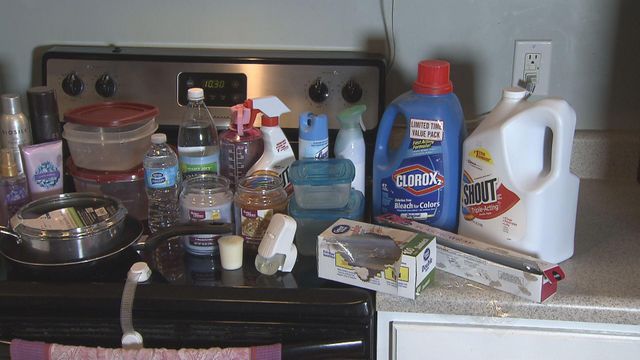NC State scientist raises awareness about household chemicals
After years of researching the impact chemicals have in our daily lives, a North Carolina State University scientist says she has changed her lifestyle to reduce her family's exposure and wants others to know how to do the same.
Posted — Updated"I think most people would be very surprised to find out for most of the 85,000 chemicals we use in commerce, most have not been tested for health effects at all,” Patisaul said.
She's so convinced about risks that she no longer uses any scented products, plastic baggies or plastic containers.
“If you reheat your food in a (plastic) container … there is the potential that those chemicals could leach into that food, and then you would eat those chemicals,” she said. "We've known for almost 50 years that chemicals leach out when you wrap your food with (plastic), and cook with it or put it in the microwave.”
Now, she and her family use glass containers and have ditched plastic wrap entirely.
Some products are labeled BPA free. The concern with Bisphenol A, Patisaul says, is that it acts like estrogen in the body. But she says experts are still unsure whether the replacement, BPS, contains other chemicals that might interfere with estrogen and other hormones.
Patisaul has gone totally scent-free in her home, including with hair products, detergents, lotions and candles. She does not use any air fresheners.
"I know these things smell amazing, but you’re basically sniffing chemicals,” she said.
With more research underway at her lab, she wants to raise awareness.
“This is really is about health. Going overboard is not going to be the solution, but there are very reasonable steps that you can take every day to minimize exposure to chemicals that pose real risk,” Patisaul said.
• Credits
Copyright 2024 by Capitol Broadcasting Company. All rights reserved. This material may not be published, broadcast, rewritten or redistributed.





